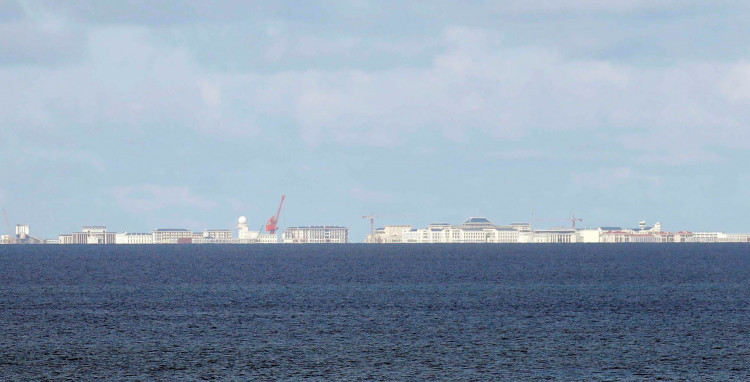Japan and Australia's defense ministers reiterated their determination Wednesday to resist unilateral attempts to change the status quo in the East and South China seas through stronger ties, despite Beijing's growing assertiveness in the region, according to the Japanese Defense Ministry.
"We reinforce our strong opposition to any destabilizing or coercive unilateral actions that could alter the status quo and increase tension in the East China Sea," Japan and Australia said in a joint statement released after the talks. The behavior "undermines the rules-based international order," they said.
According to the ministry, Defense Minister Nobuo Kishi and his counterpart, Peter Dutton, both "strongly condemned" North Korea's March test-firing of two ballistic missiles into the Sea of Japan, the country's first such launch in a year and a violation of U.N. Security Council resolutions.
Their first conversation since Dutton took office in March came after a joint exercise in waters off the coast of Kagoshima Prefecture in southwestern Japan, which also included the U.S. and France.
The exercise was held as Tokyo seeks to expand defense cooperation outside its long-standing security ally, the U.S., at a time when Beijing's rising military presence in the East and South China seas is causing alarm in neighboring countries.
Concerns intensified, especially when China passed a new maritime security law in February, allowing its coastguard ships to fire on foreign vessels in waters Beijing considers its own.
China's extensive territorial claims in the South China Sea have clashed with those of its neighbors, who accuse Beijing of militarizing one of the world's busiest sea lanes.
The joint statement expressed "serious concerns about the recent negative developments and serious incidents in the South China Sea, including continuing militarization of disputed features, dangerous use of coast guard vessels and 'maritime militia,' and efforts to disrupt other countries' resources exploitation activities."
The two ministers also pledged to strengthen trilateral defense cooperation with the U.S. to implement their initiative toward a free and open Indo-Pacific, the Japanese ministry said.





